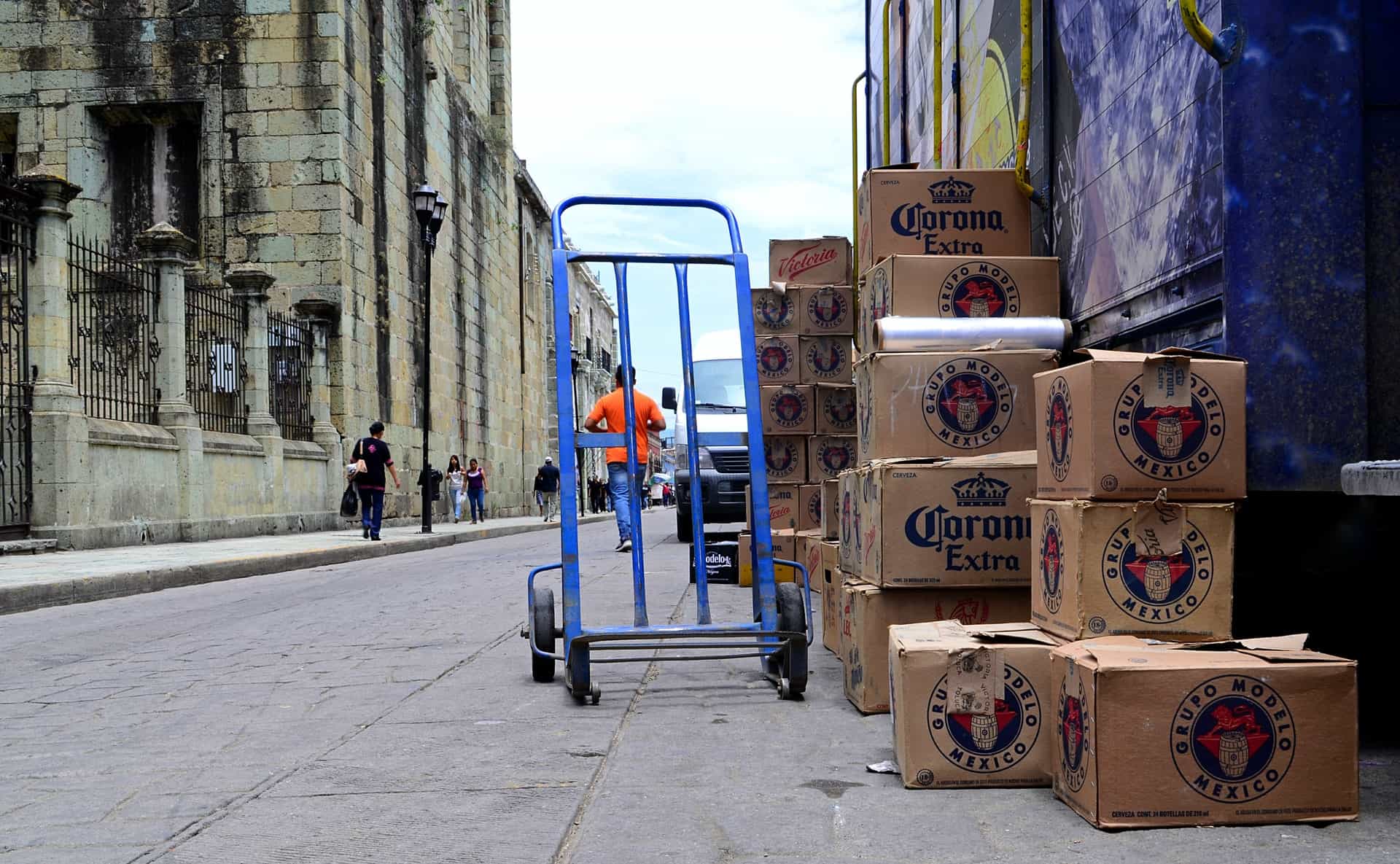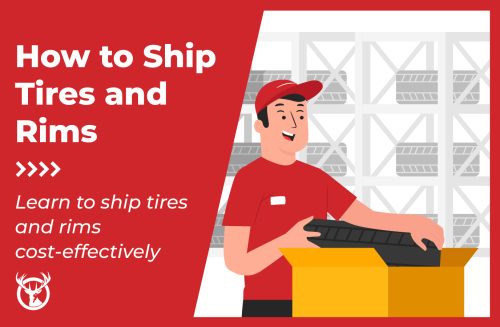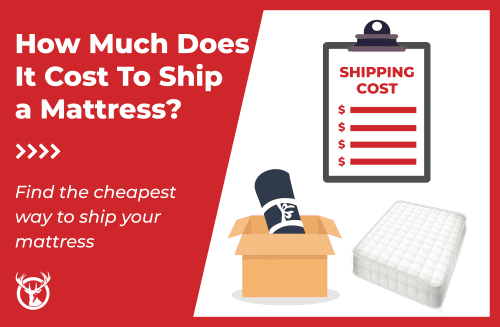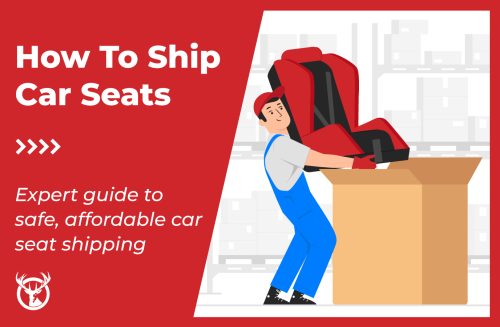Everything is getting delivered these days, and that has many eCommerce companies asking how to ship alcohol to see if it can be a part of their growth strategy. In our research, alcohol has some of the more complex requirements and regulations that shift significantly based on your location and where each customer lives. Shipping beer, wine, and spirits takes a lot of review and planning, which may throw a wrench in your plans.
Let’s look at what it takes to ship alcohol in the U.S. and how to accomplish that goal with two of the major carriers.
Is it legal to ship alcohol?
The quick answer about shipping alcohol in the U.S. is that it is legal but complicated, and only if you’re a licensed store. Carrier and state restrictions won’t let you ship alcohol if you’re an individual or lack a liquor license. From there, you’ll need to start asking a lot more questions about your business, your products, where you operate, and where your customers live. You can also face restrictions on quantities you can ship depending on your company and if your customers are consumers or other businesses.

While the pandemic has changed some rules and requirements, these generally only impact the state in which you operate. So, in Maryland’s Montgomery County, for example, restaurants can apply for permission to make beer and wine available with food deliveries because the county suspended a prior restriction. Changes due to COVID-19 are interesting, but it’s not yet clear if you should make a permanent change to your business plan because of them.
Know your products
Beer, wine, and liquor (or spirits) are treated differently by many laws and carriers. You may face different requirements based on your products or even subcategories within a product type. For example, beer can face different restrictions based on its alcohol content. Spirits in a flavored mix, like a premade margarita, may also be subject to different regulations.
You’ll want to consider how locations treat your products carefully.

What laws do I need to follow to ship alcohol?
You’ve got to monitor many different regulations to ship alcohol. Various local, state, and federal laws govern products, shipping, labeling, and more. Also, you will face different restrictions and requirements when you try to ship alcohol in-state, out-of-state, or internationally. In-state shipments are generally the easiest because you only need to address laws for a single state and up to two counties.
Remember, review regulations and requirements for your location, where you ship from if you use a 3PL, and where customers live. You’ll need to follow the rules for alcohol and general hazardous material requirements in many cases. Regulations may limit your business because of requirements including:
- Some states limit when an out-of-state company can ship alcohol products.
- Retailers may not be able to ship alcohol products to some states, while a winery can.
- Your customer may be required to purchase directly from you or even in person.
- You’ll need to verify the age of the customer at purchase and sometimes at delivery.
- The shipper must label products as containing alcoholic beverages.
- Some counties within states have additional limitations.
Look for the specific licenses your state requires.
An example to consider
States treat your products differently, which can impact when you can send a product to a customer. Let’s look at an essential rule for wines. Some destination states, such as Arkansas, allow shipments to consumers from licensed out-of-state wineries only when they purchased the wine at the winery’s physical location. UPS lists these as “Winery On-Site Purchase States.”
To meet the requirements of these states and to get a carrier like UPS to ship your wine in this manner, your business must meet a few requirements:
- You hold required winery licenses and permits in your state and any required by the destination state.
- The wine is purchased at your winery’s physical location (and you’ll need proof in case of a review or audit).
- You verified that the buyer was legally old enough to buy wine.
- The purchaser agrees that the wine is for personal use only.
- The specific purchaser is listed as the consignee.
- In most cases, you’ll also need to request a signature on delivery by someone aged 21 or older.
That’s complex and just one such case that will apply to any winery in the U.S. that wants to ship to a handful of states.

What carriers can I use to ship alcohol?
The U.S. postal service can’t ship “intoxicating liquors,” including anything with 0.5% or more alcoholic content due to federal law. The only exceptions it lists on its website are cold remedies, cooking wine, and mouthwash. Cooking wines have specific restrictions, generally meaning they’ve been dealcoholized. That said, many retailers have noted difficulty with even these wines in some cases.
UPS and FedEx both allow businesses to ship beer, wine, and liquor, but they come with significant restrictions for your business. Some smaller carriers also support delivery, but they typically have more limitations, such as shipping to local customers. They also tend to take cues from UPS and FedEx, so it’s good to look at restrictions and concerns from those two major carriers.
UPS
UPS lists beer, wine, and spirits under its “regulated items” classification and will only ship your products to states and locations where local laws allow. Your business will need to be licensed in your state, share the license with UPS, and enter a specific agreement with UPS for these products. You’ll need appropriate licenses, typically a retailer, brewery, distillery, or winery license.
UPS will work with you to understand if you can ship products to someone legally. Typically, this happens when you try to submit the order for fulfillment. The carrier requires a “UPS Compatible Shipping solution such as WorldShip” or any other approved third-party vendor systems. You’ll also need to use its advanced signature request tools such as Quantum View Notify to notify the customer and capture a signature.
However, ultimately you’re still required to ensure that every order can be legally purchased and delivered.
There are additional requirements based on products, such as the types of packaging you can use. For example, you’ll need to ensure that the box is heavy-duty. It needs an inner packaging of molded Expanded Polystyrene foam, folded corrugated tray, or molded fiber tray.
Find out more from these UPS sources:
- UPS Beer Shipping Program
- Addendum A for beer with information on state restrictions
- UPS Spirits Program
- Addendum A for spirits with information on state restrictions
- UPS Wine Program
- Addendum A for wine with information on state restrictions
FedEx
FedEx allows businesses to ship alcohol either through licensee-to-licensee or licensee-to-consumer shipping. Like UPS, you’ll need to sign a specific FedEx Alcohol Shipping Agreement. To access the agreement, you’ll need to create a business account, have a phone call with an assigned account executive, and then request the agreement.
The core difference is that FedEx will not ship beer or spirits to consumers, only to licensed entities like retailers. FedEx offers this handy chart of how you can ship alcohol in the U.S. using its services.
When you’re on the FedEx website, most pages will discuss wine. We have confirmed that FedEx still ships wine and beer, but the company recommended discussing the particulars of your products and shipping destinations with your account manager.
FedEx requirements to ship alcohol include:
- Shipping labels must be created electronically using a FedEx-approved third-party system or its own FedEx Ship Manager. You can’t use air bills for domestic shipments and must identify all alcohol shipments in the software.
- You’ll need to follow the FedEx alcohol packaging requirements that include molded polystyrene.
- Use the adult signature service options, which generally will cost you $5.75 per shipment.
- Use the alcohol shipping label provided by FedEx.
- Any returns must be in the original shipped box so that the alcohol label is still present.
FedEx also has a state-by-state wine shipping reference for you to use.
Get partners and tools that know the law
It can be challenging to keep up with local laws while you’re trying to run your business. One of the best ways to protect yourself while still being able to ship alcohol is to have a series of partners specializing in shipping alcoholic beverages or other specialty goods.
There are plugins for WooCommerce, Shopify, and other platforms that can help you properly label any order with alcohol. They can integrate with your order management and warehouse tools to help pickers and packers meet packaging and labeling requirements too. If you’re outsourcing to a 3PL to ship alcohol, find someone with existing knowledge and product expertise. They should help you meet state requirements and flag potential issues when spotted.
Work with companies that make it their business to keep up with these changes. That way, someone is on your side for monitoring state licenses, like these Tennessee requirements, or if Congress goes through with alcohol.
Shipping Alcohol FAQ
How to Ship Alcohol?
In order to ship alcohol, first the shipper needs to have a liquor license, and the U.S. state to which the alcohol is being shipped must allow it legally. Thus, if you don’t have a business that has a license to ship alcohol, then it is best to ship alcohol through a merchant (many of which offers wine, beer, and liquor shipping online) that is licensed to ship alcohol. It can be confusing to figure out what U.S. states allow alcohol shipping and delivery. Wine.com, a popular site for buying wine, has a message at the top of the store site that reads: “Due to state regulations, we cannot ship wine to Michigan.” All of their products will appear “out of stock” if MI is selected as the destination state. This is a good example of how laws and regulations in different states can vary, and determine whether alcohol can be shipped legally or not. According to one news article, in Wisconsin there is a bill that was introduced in February 2023 that would allow customers to purchase alcohol online, whereas before they had to purchase beer or liquor in a store in-person.
How to Ship Alcohol to a Friend?
The best way for the general public to ship alcohol to a friend (when legal – see information on state alcohol regulations above) is by purchasing wine, beer, and / or liquor through well respected, and highly rated online merchants, such as: Wine.com, Naked Wines, ReserveBar, Wine Insiders, Vinebox, Dry Farm Wines, Winc, Firstleaf, Bright Cellars, FreshDirect, Drizly, and Macy’s Wine Shop.
Can You Ship Alcohol Through USPS?
No, you cannot ship alcohol via USPS. USPS will not ship beer, wine, liquor, spirits, booze, whiskey, or any form of alcohol for any reason to anyone.
How to Ship Alcohol UPS?
In order to ship alcohol with UPS, shippers must be licensed to ship alcohol, and have a signed contract agreement with UPS approving the arrangement. In addition there are packaging requirements that must be adhered to. For example, for shipping wine UPS, corrugated containers must be used, and bottles must be situated in the center of the container so that they are not near the sidewalls. An adult signature is also required when the delivery occurs (Quantum View Notify® is recommended).
More specialty shipping to discover
Red Stag Fulfillment offers eCommerce fulfillment services for a wide range of products, and we’re happy to help you get your goods to customers. We offer multiple tools and services, plus blog posts, to make it easier to ship your goods and save on elements like DIM weight. We hope you found this useful if you’re considering shipping alcohol. Check out these other posts to learn how to ship other goods:









